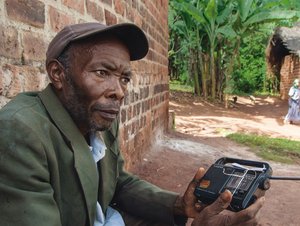Knowledge sharing

Over the last few decades, the range of agricultural extension and advisory services as well as the notions of which tools and methods are most suitable have seen fundamental changes. The concept of rural advising has long shifted from a linear transfer of technology to a pluralistic system of networks and innovations that brings the various stakeholders together and creates scope for mutual learning and exchange. More and more often, attempts are being made to move from the usual top-down transfer towards a demand-driven approach that actively involves farmers in the whole process – from prioritising and generating extension content to monitoring and evaluating the services. Regardless of the method or tool applied, it is ultimately always up to the farmers to make what they think is the right decision – and to hold responsibility for this decision.
- Sharing knowledge – to the benefit of all(2020)
- E-book readers: Handy tools for agricultural extension workers in Ethiopia?(2016)
- Reaching the millions!(2016)
- Rural advisory services – back on the development agenda!(2014)
- Clarifying roles in extension processes(2014)
- Many actors, little coordination(2014)
- Sustainably financing extension services(2014)
- Setting out from farmer realities(2014)
- Modern ICTs and rural extension: Have we reached the tipping point?(2014)
- Biovision’s Farmer Communication Programme(2014)
- Farmer-to-farmer knowledge exchange(2014)
- From lab to field to market(2014)
- A (women)farmer-first approach – a case study from Papua New Guinea(2014)
- Empowering rural women in India – it’s high time!(2014)



